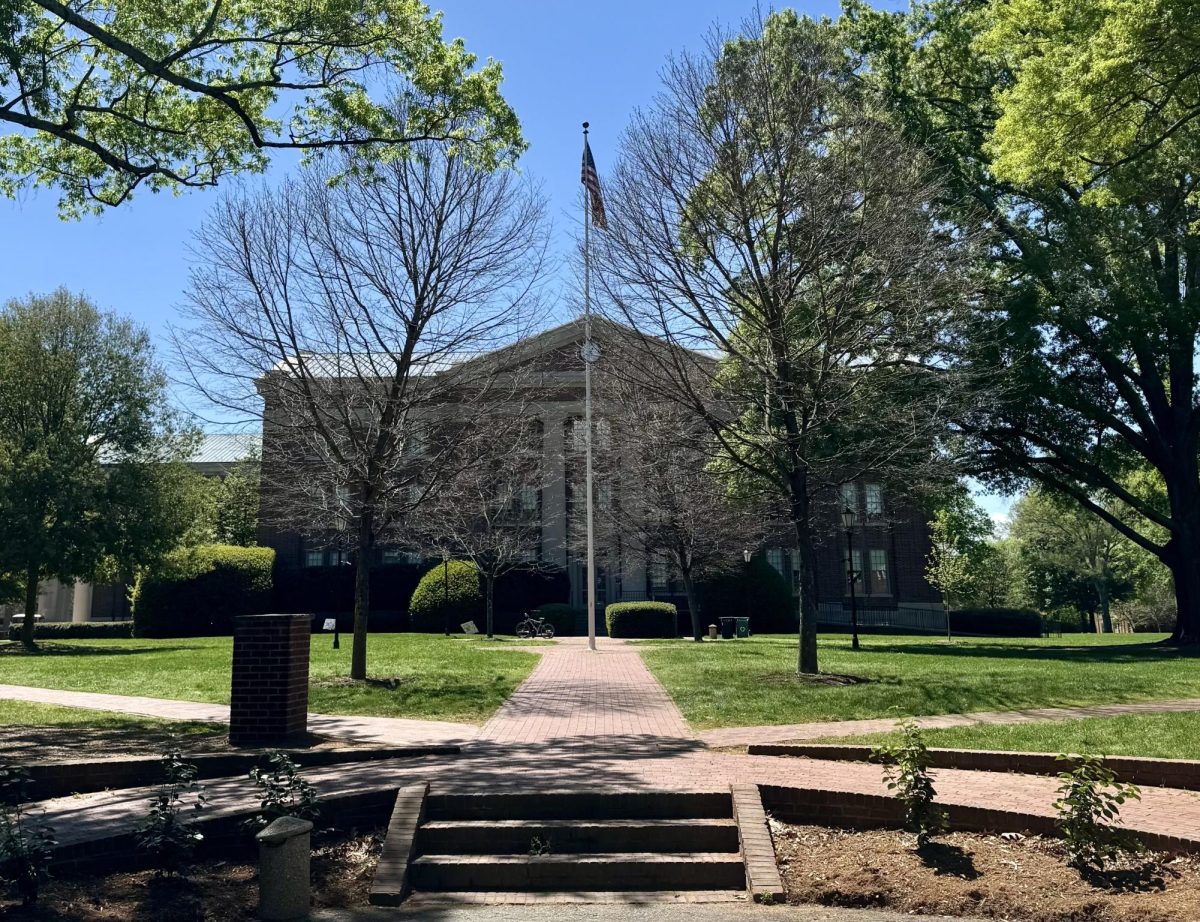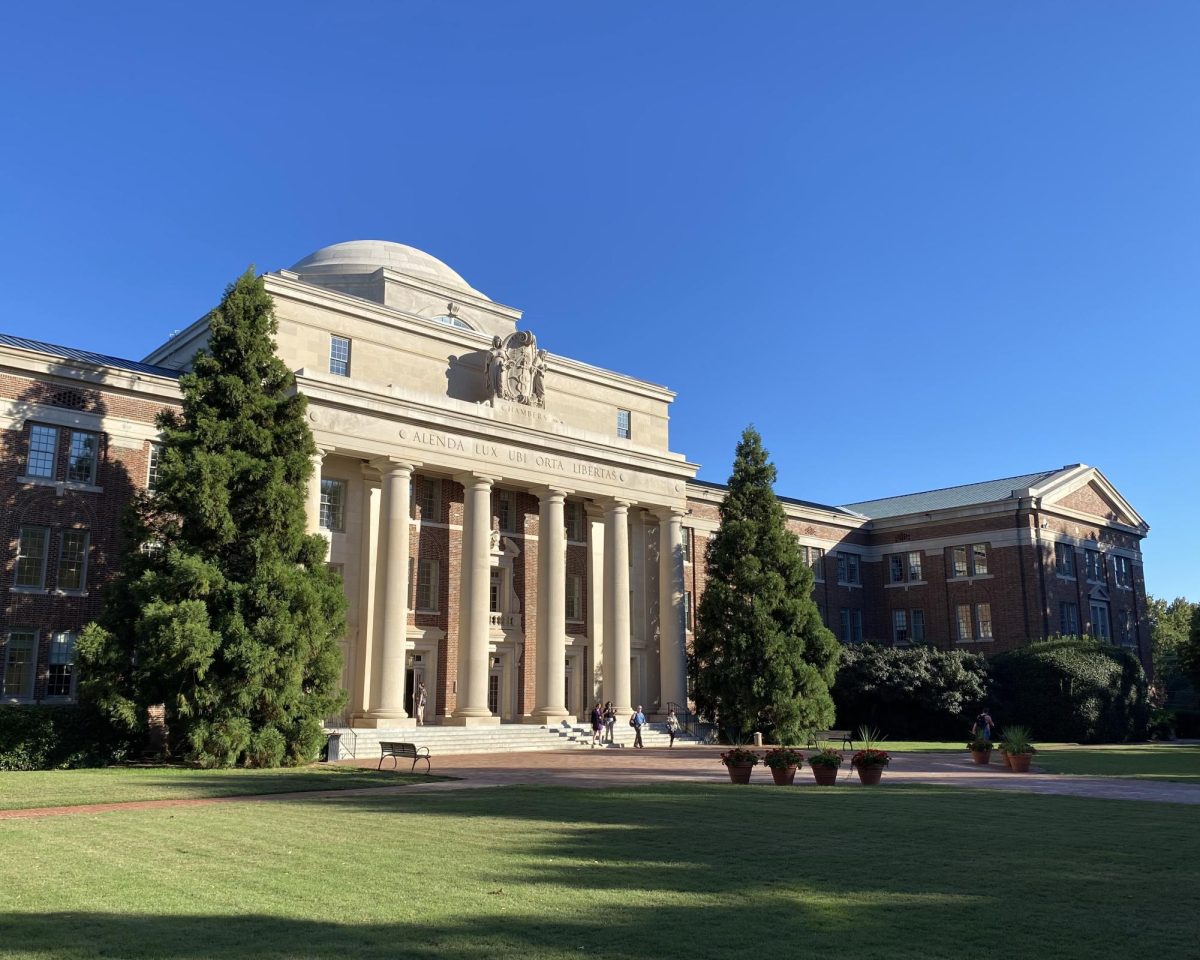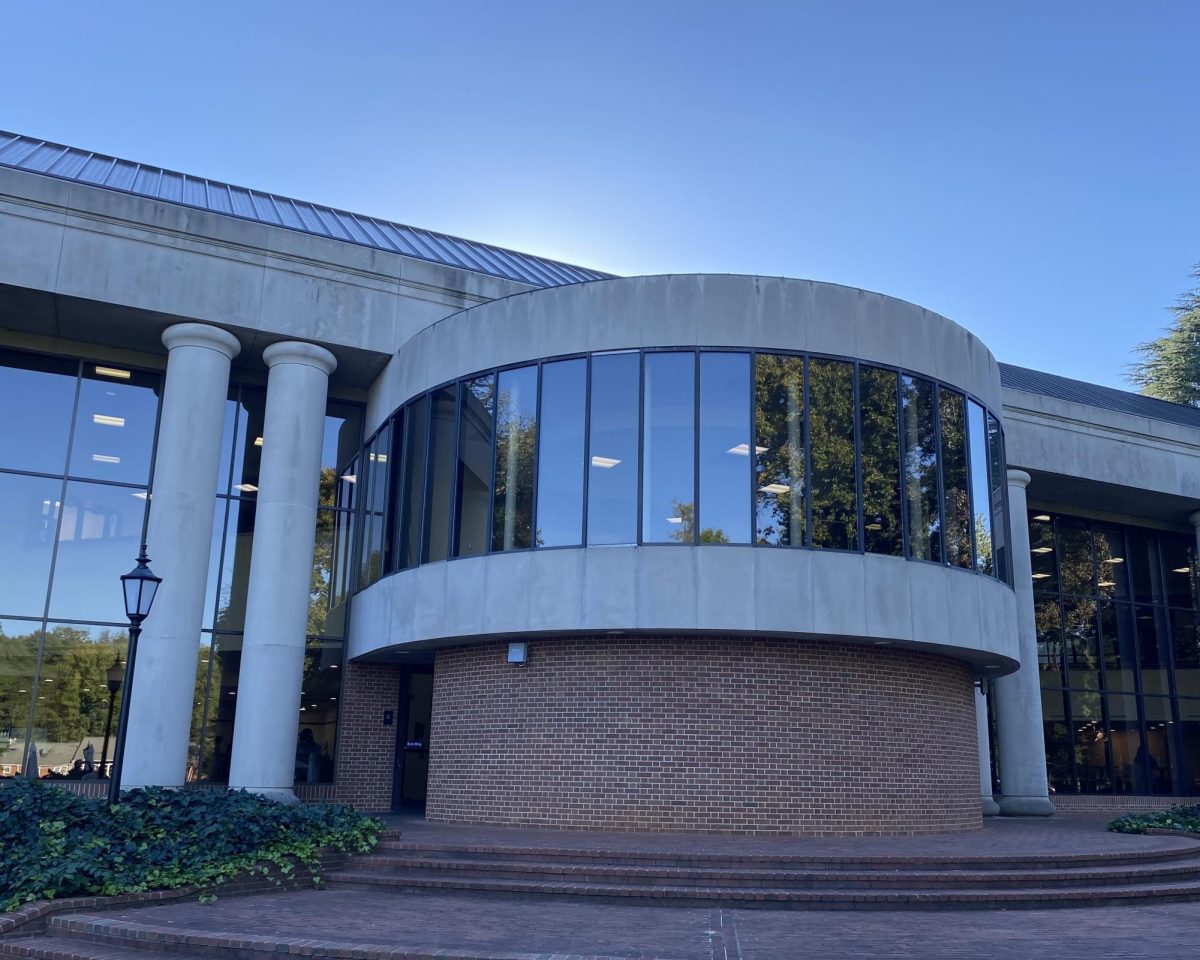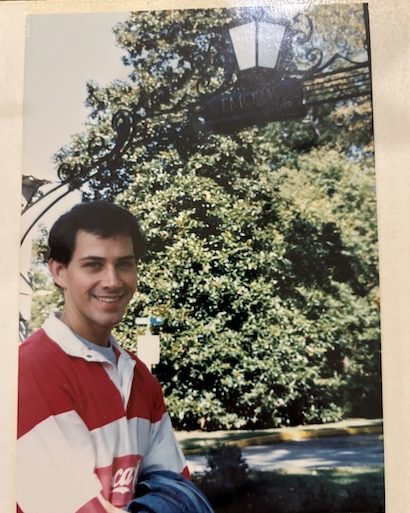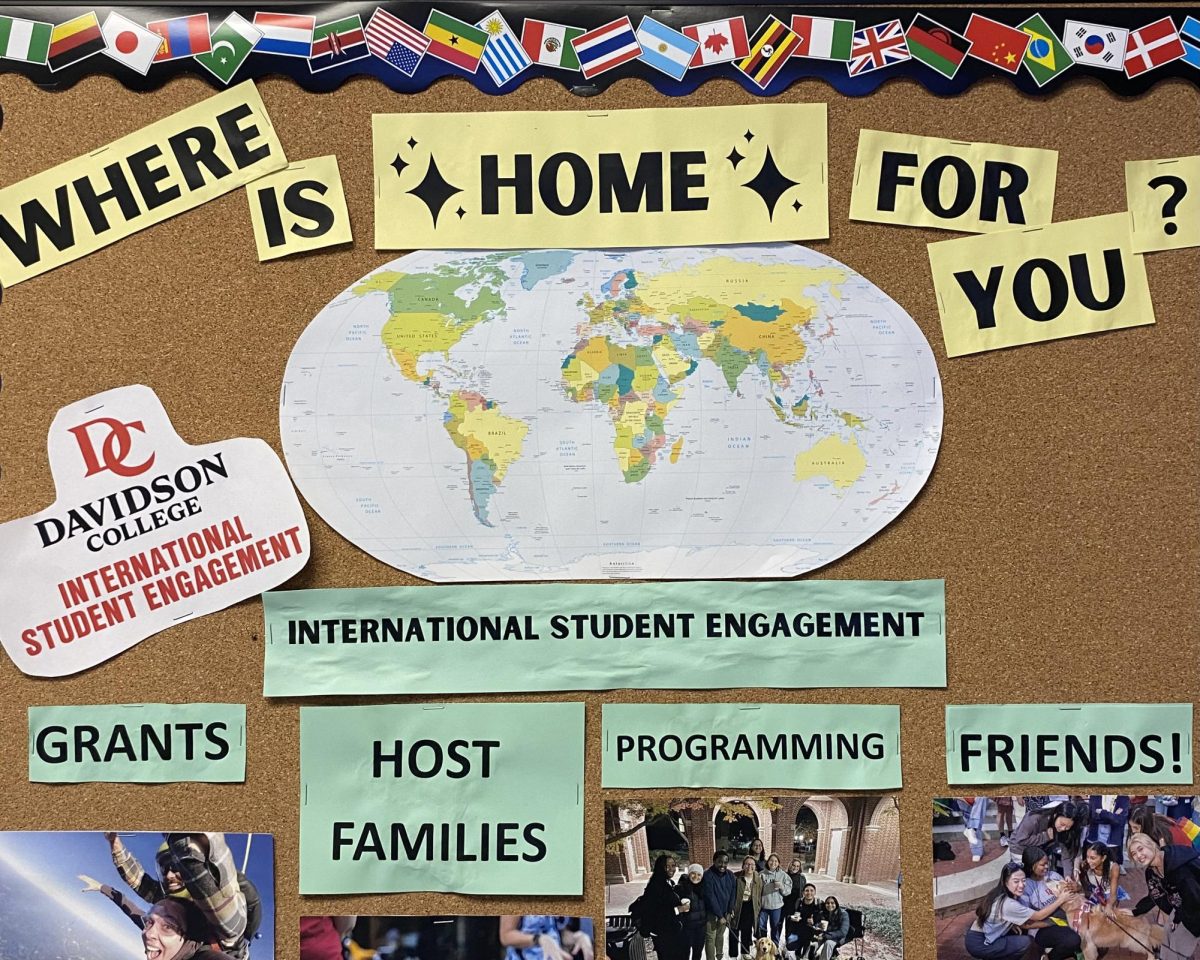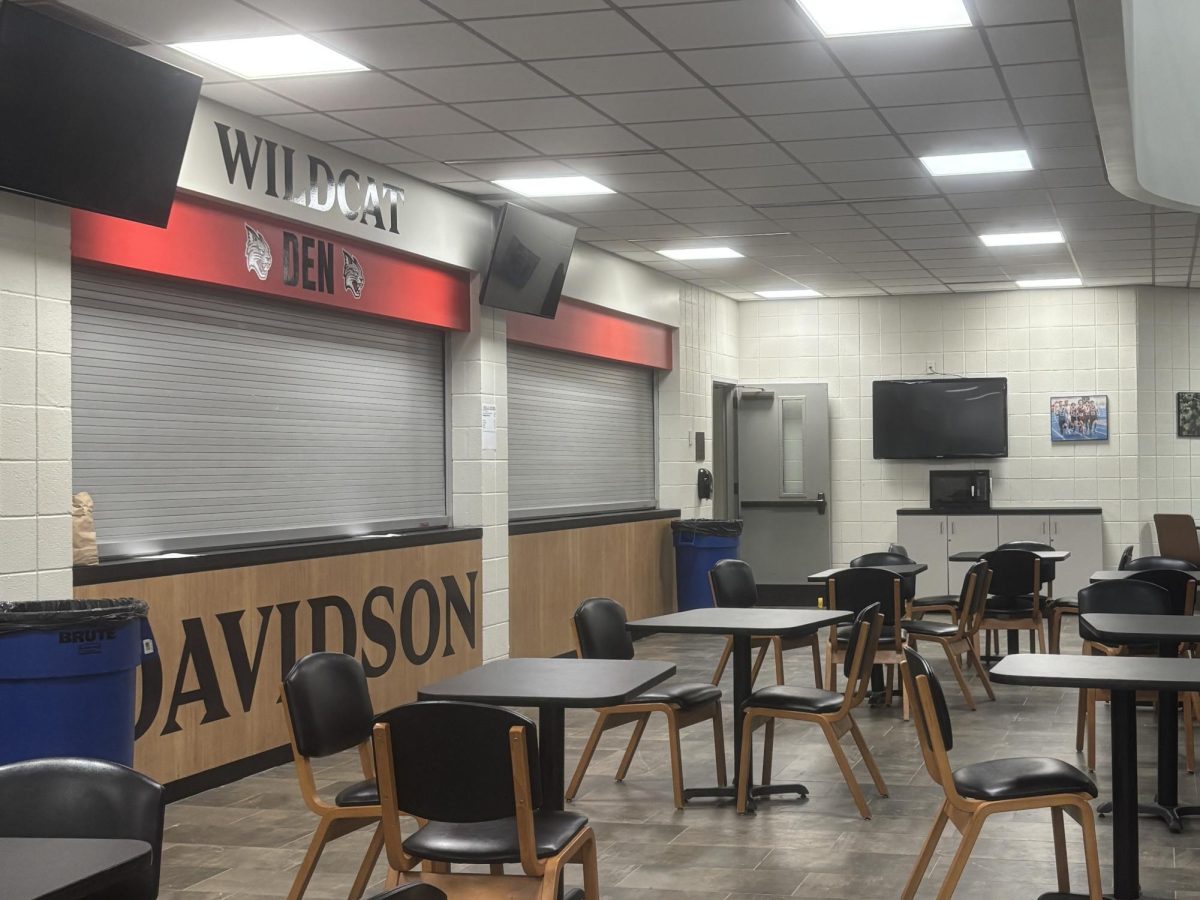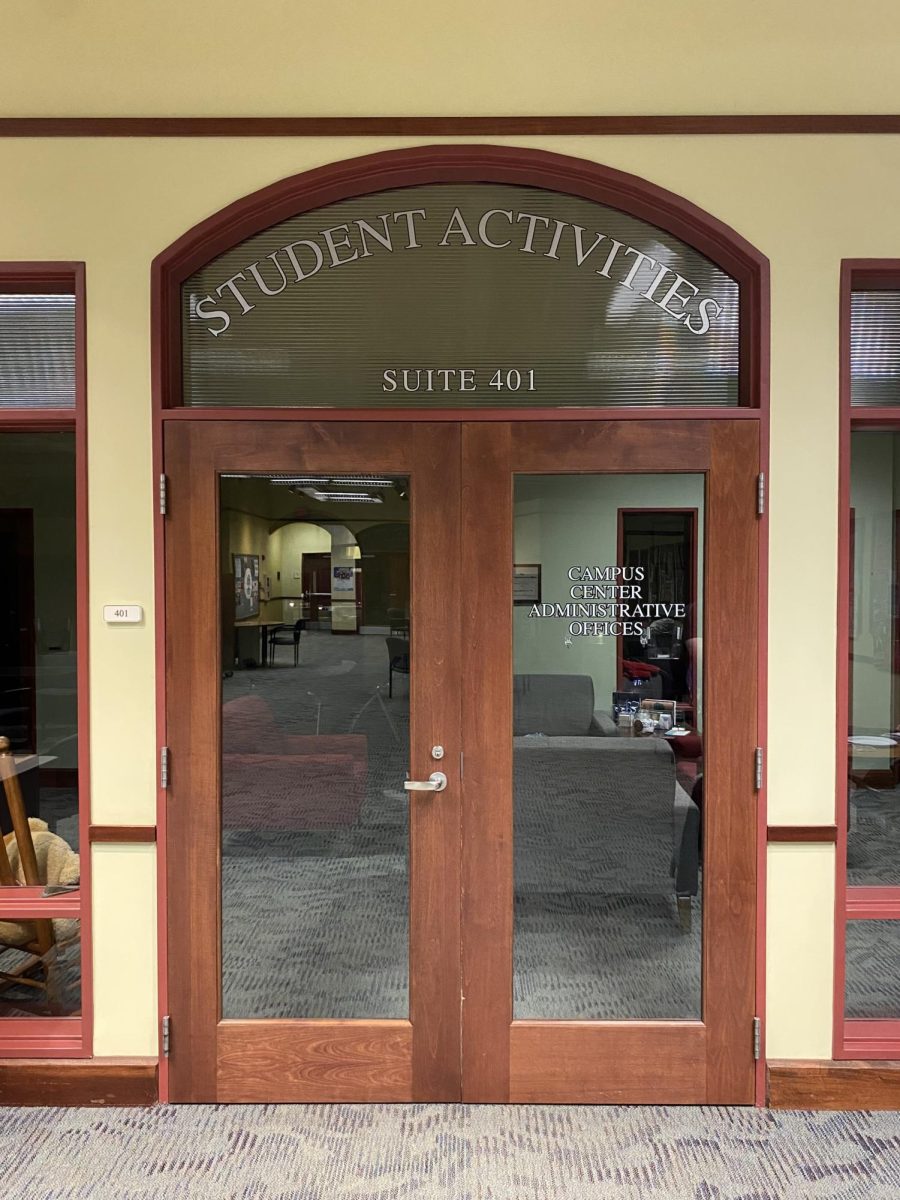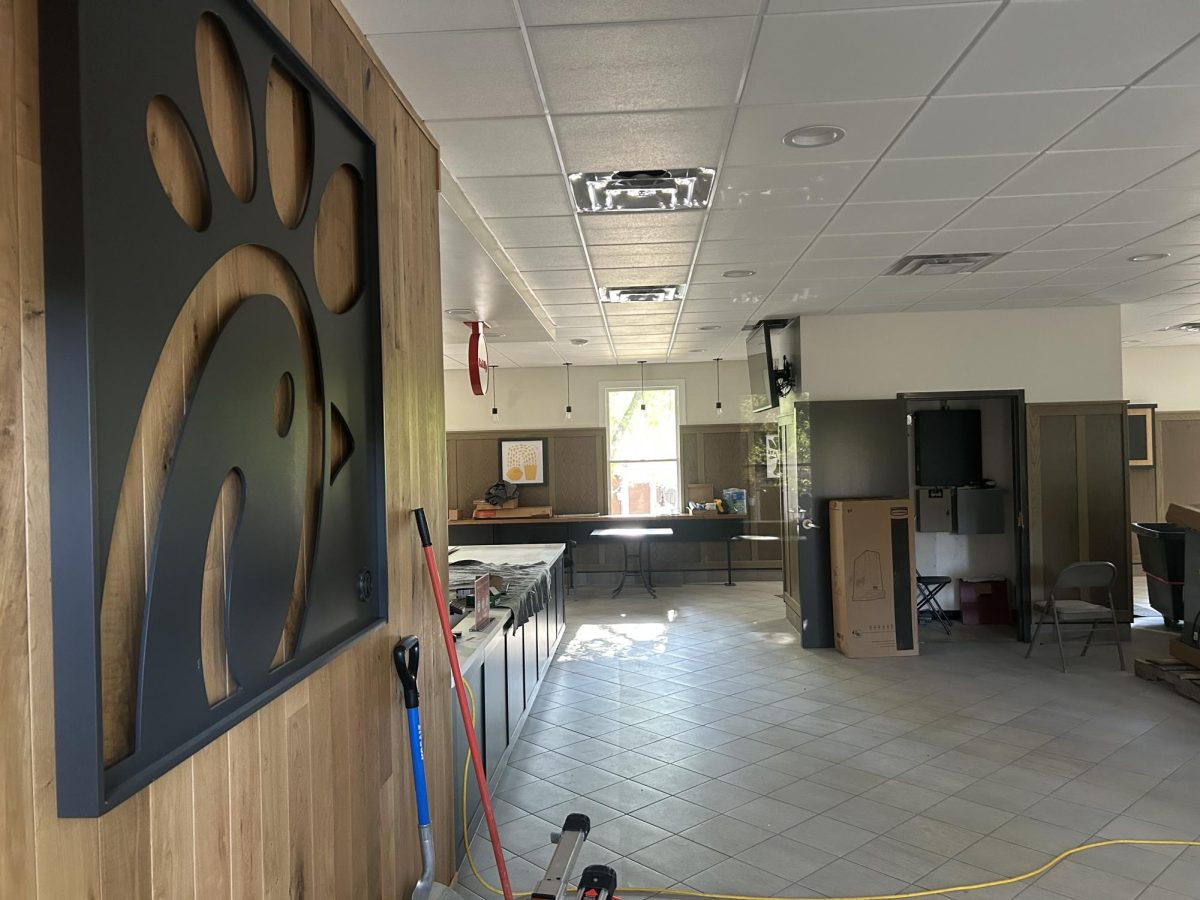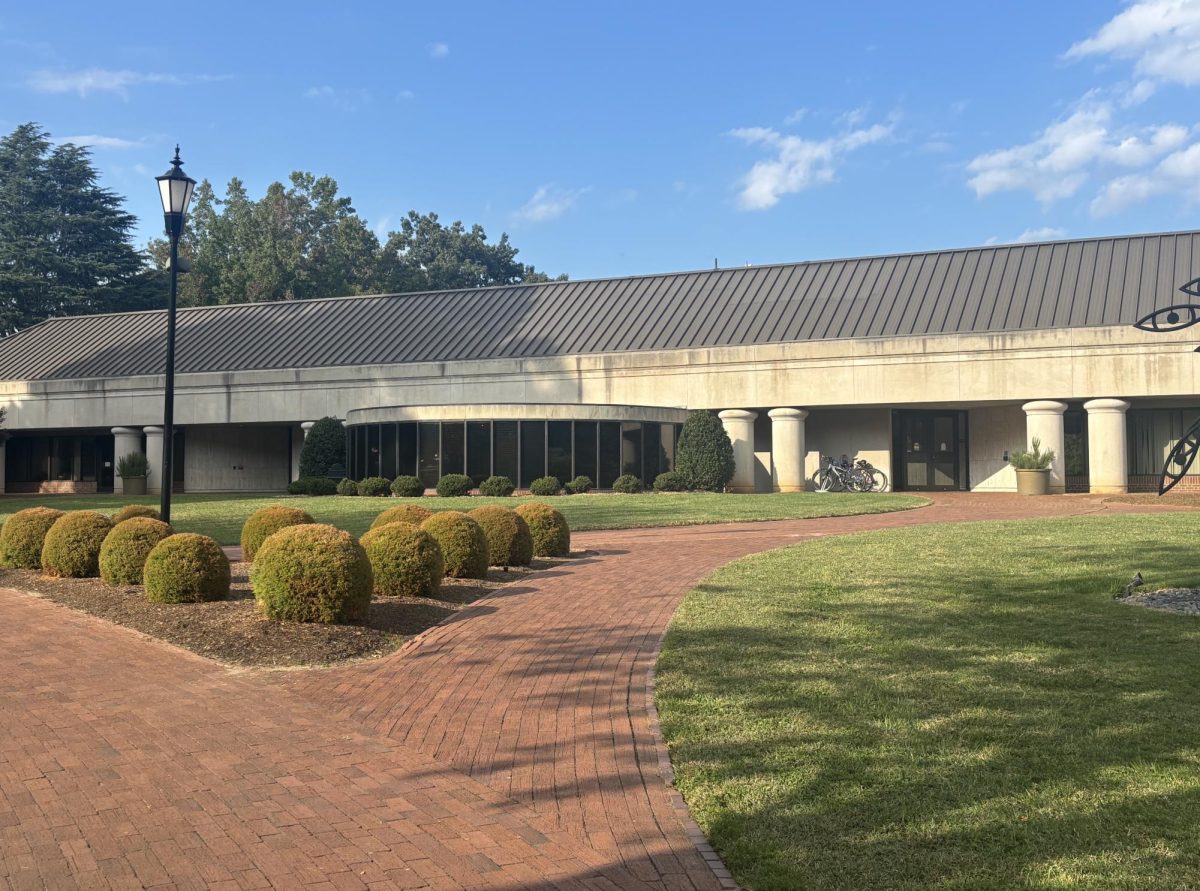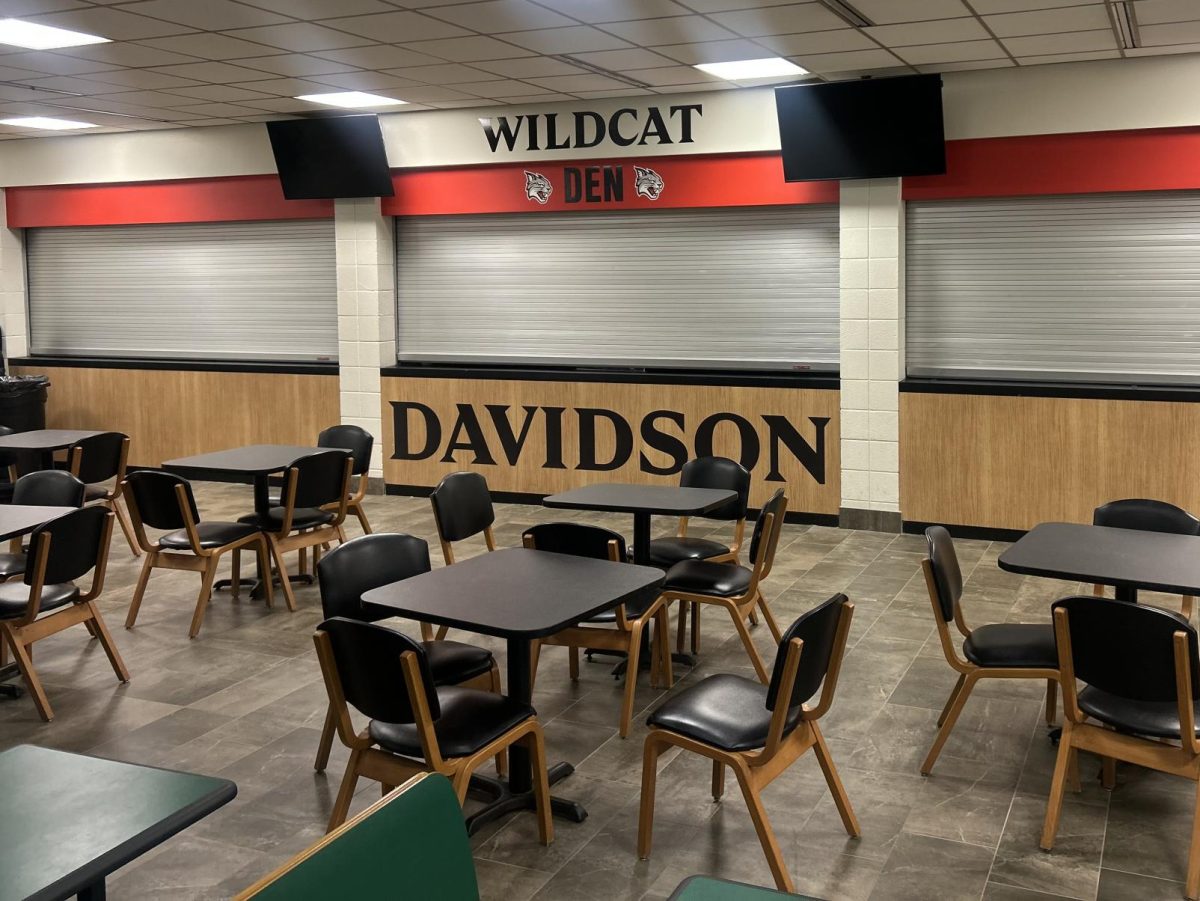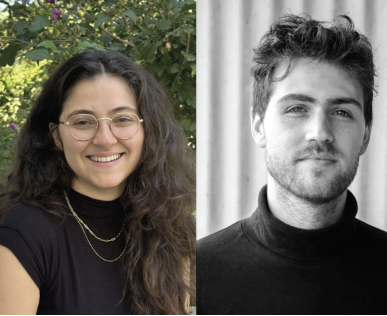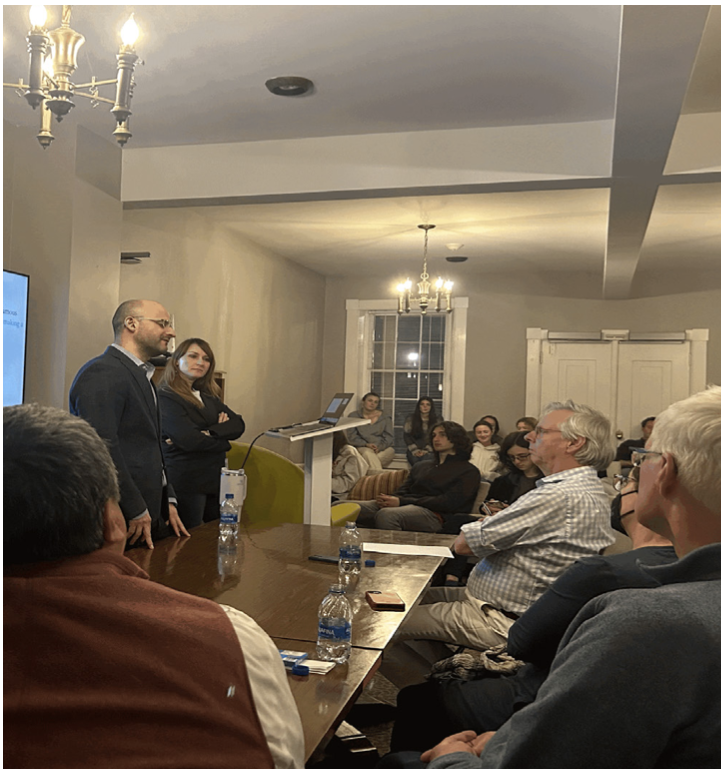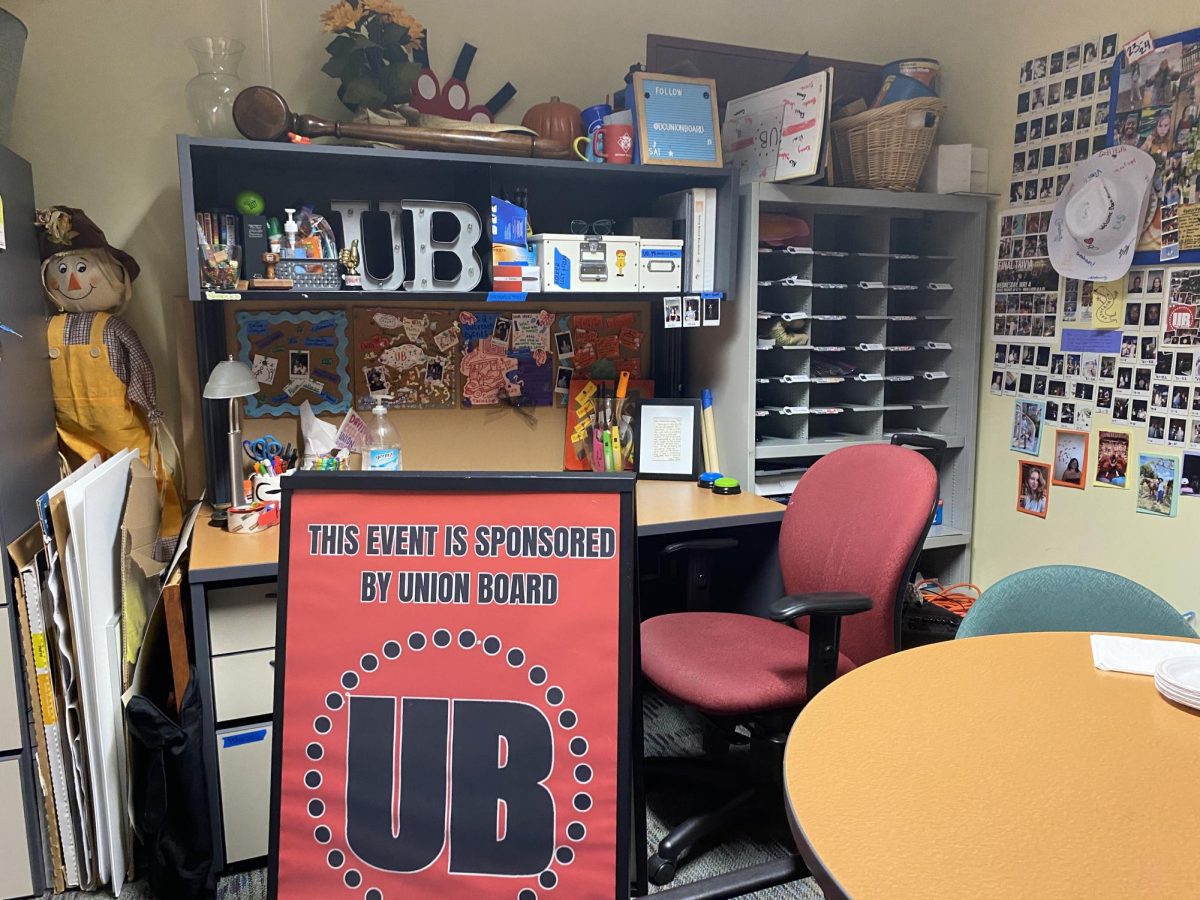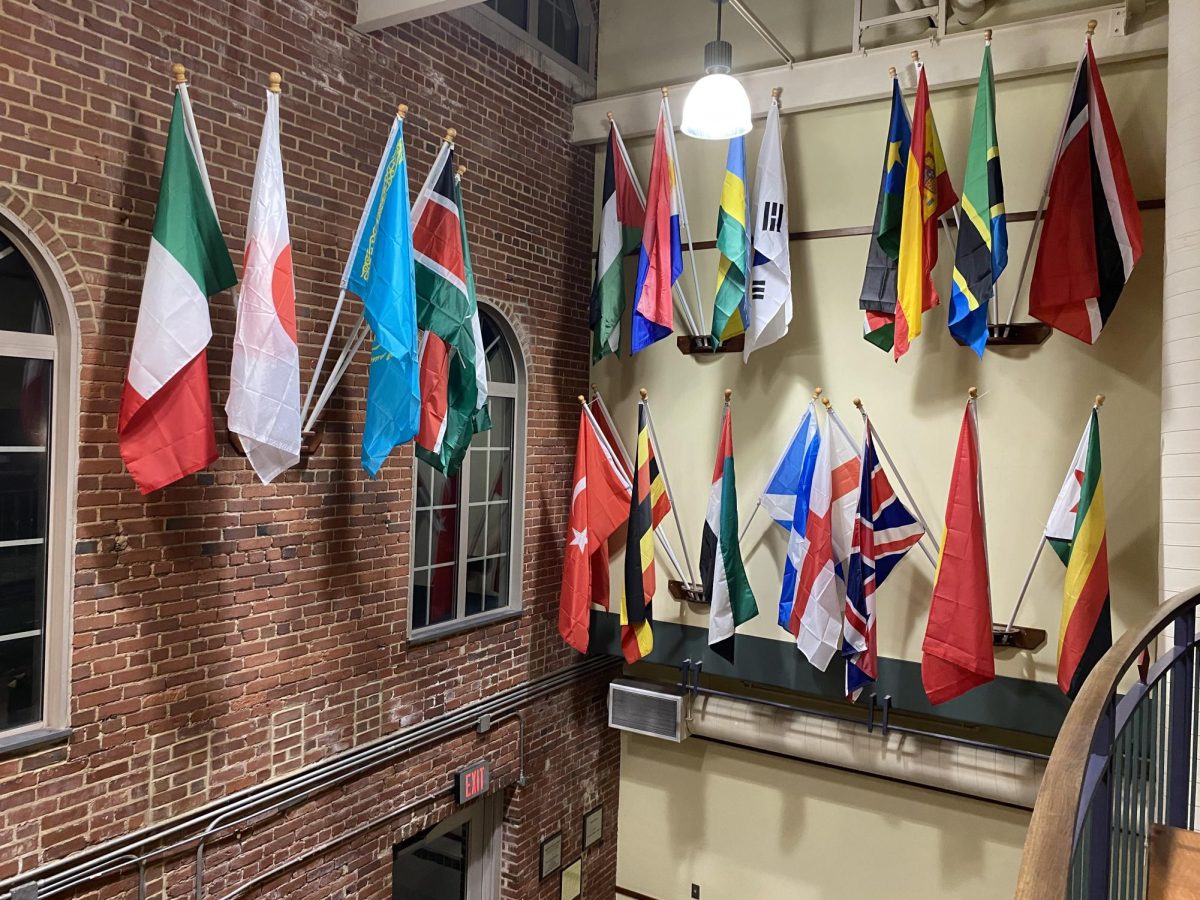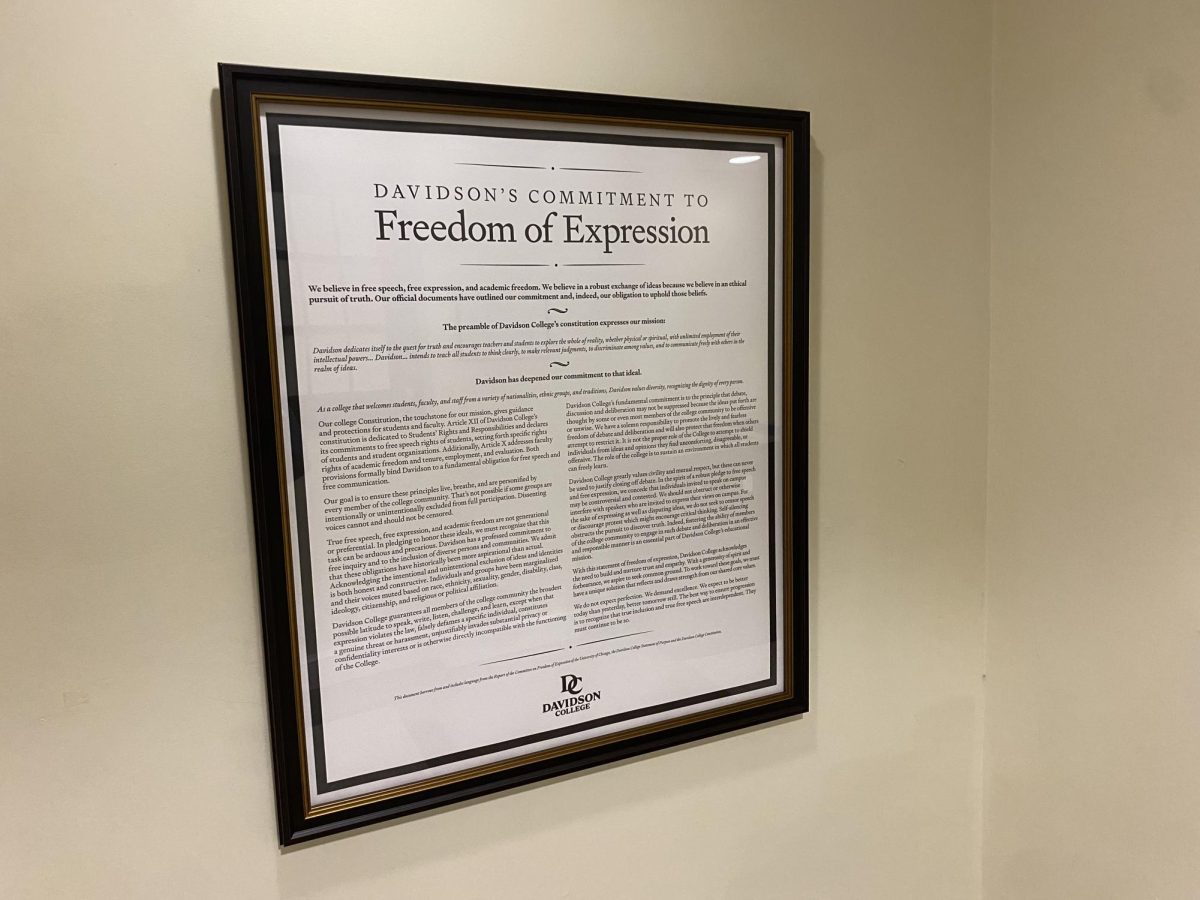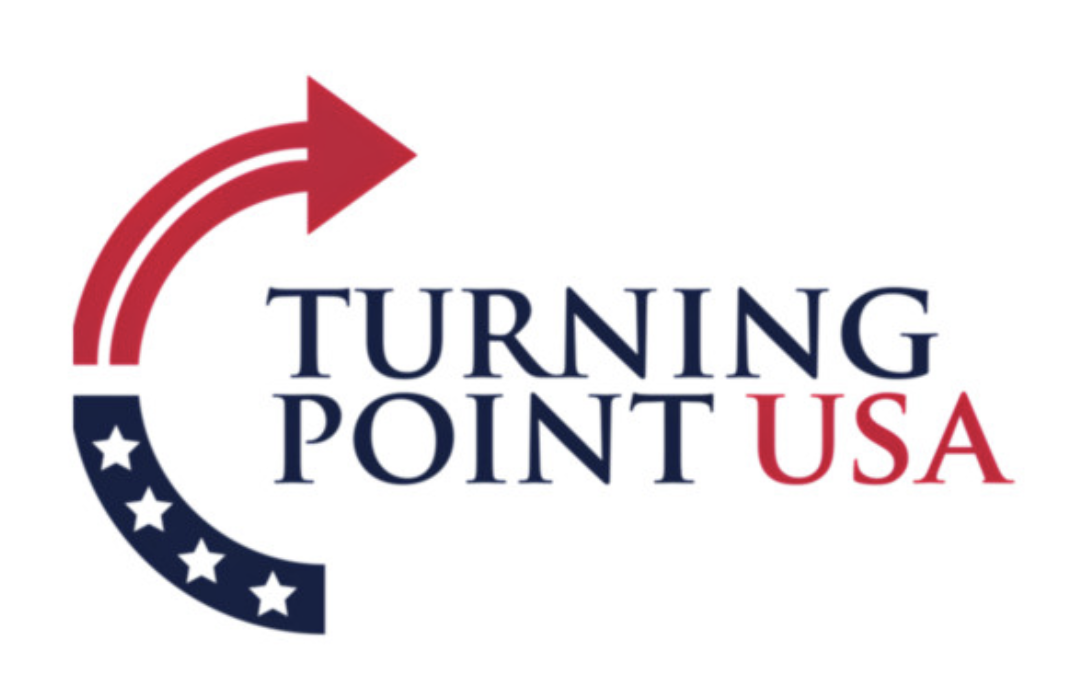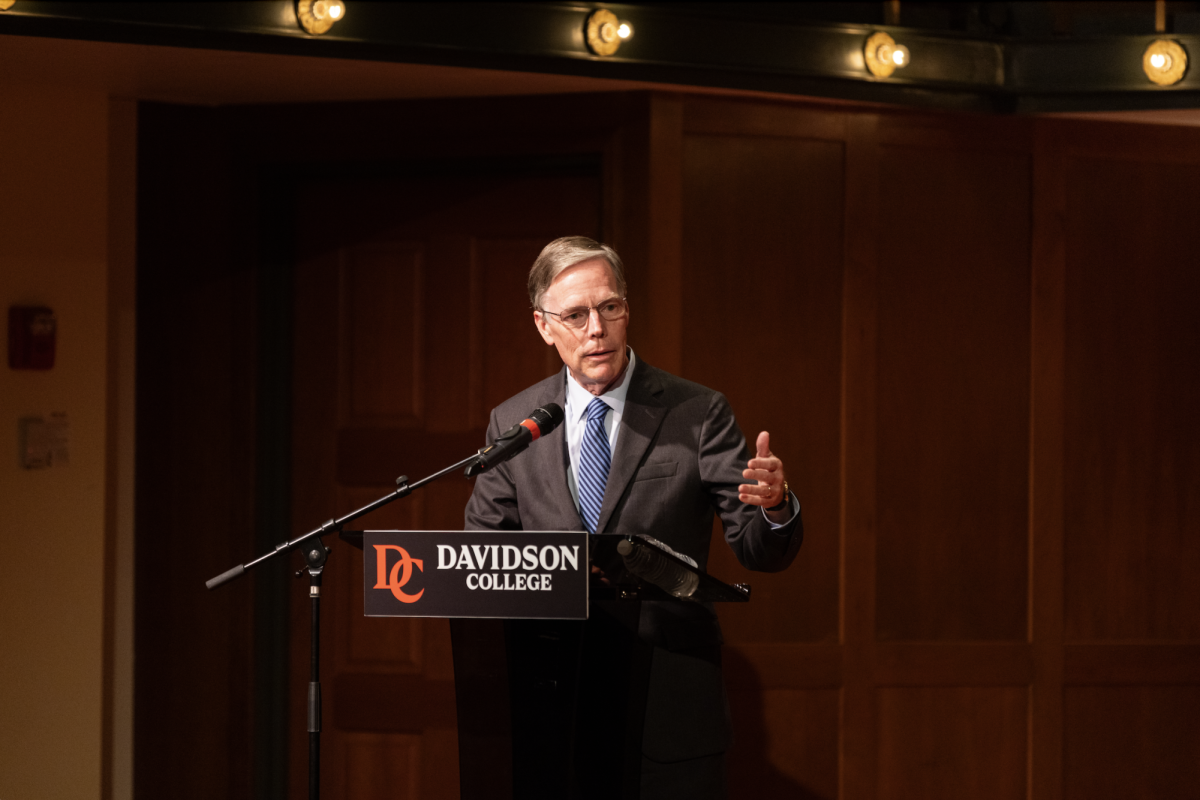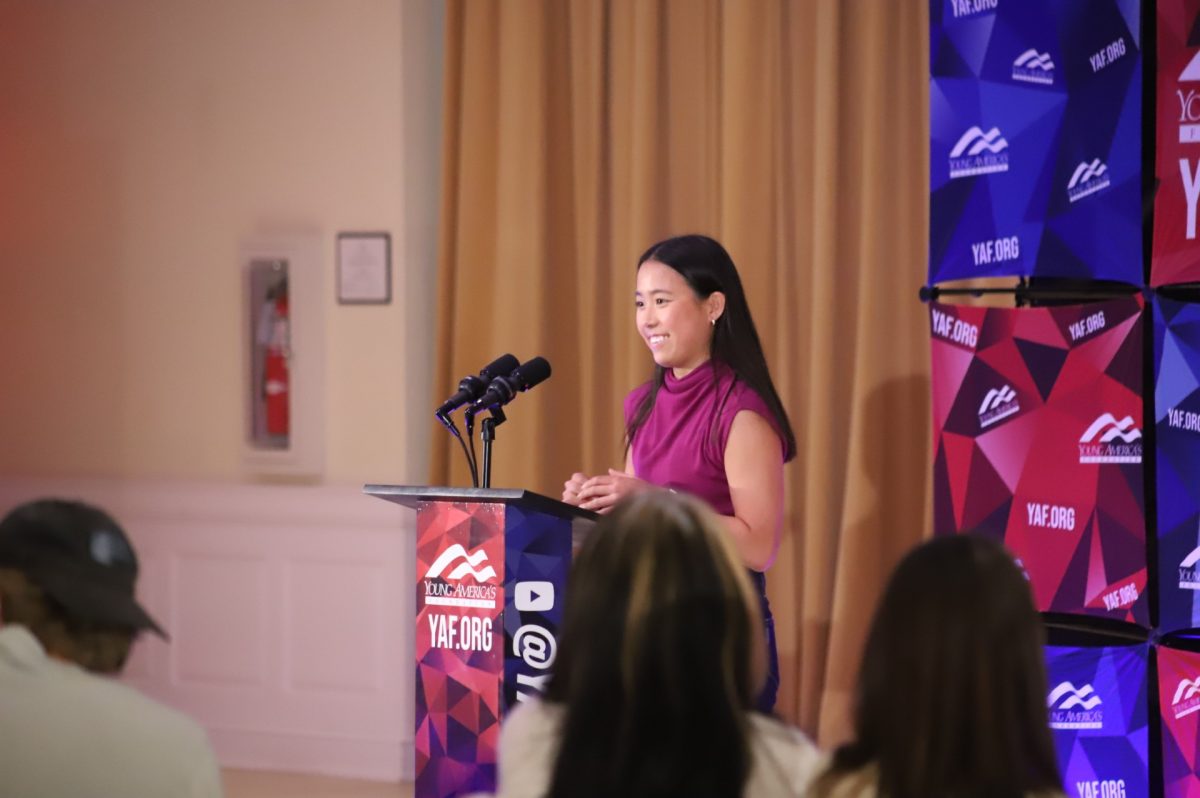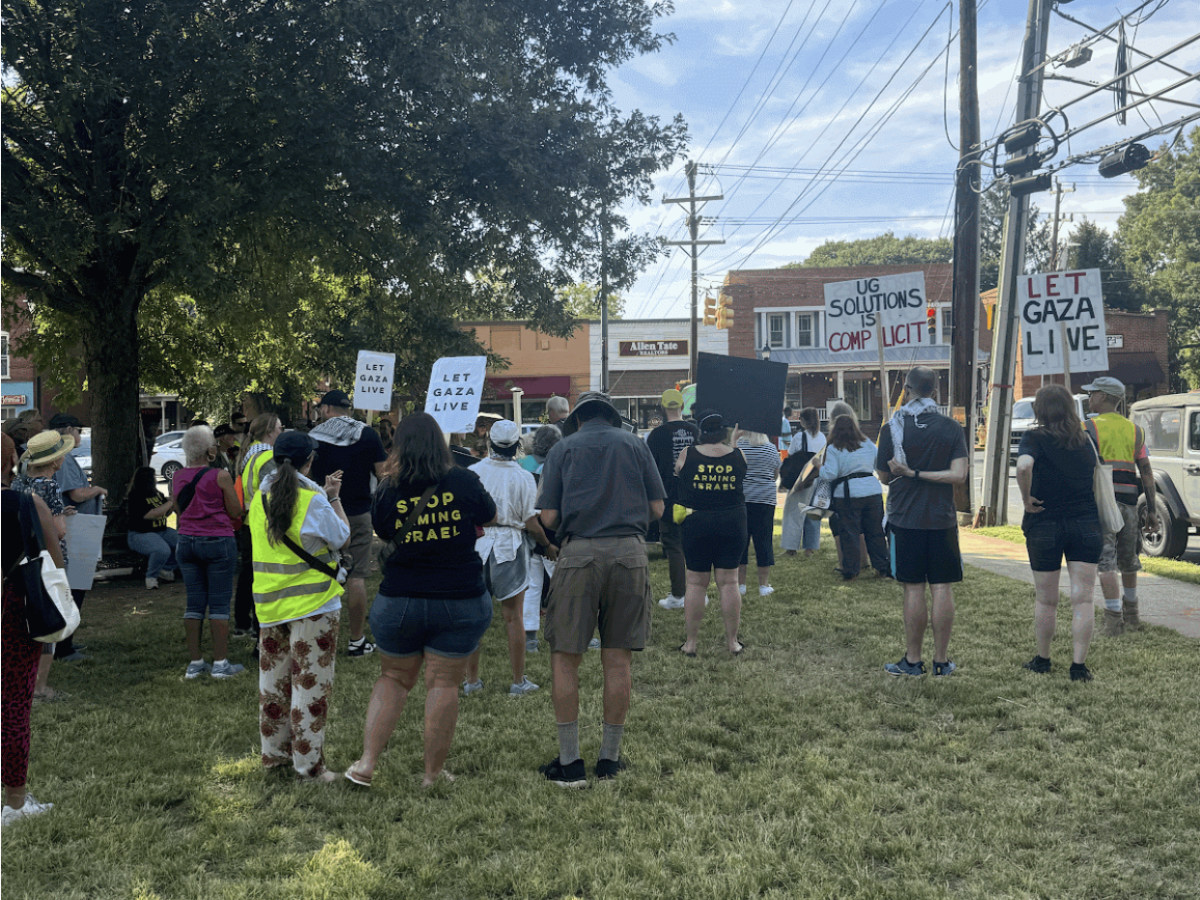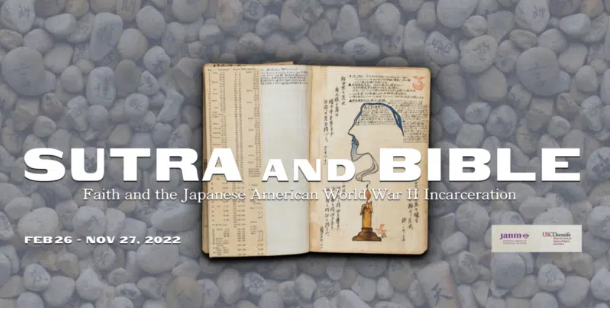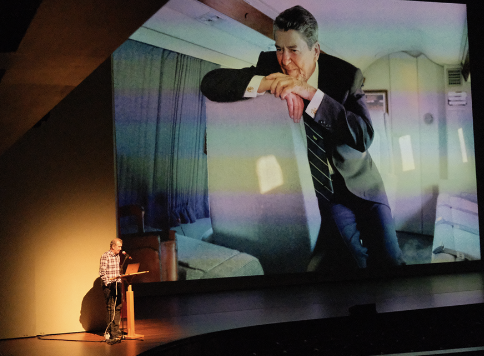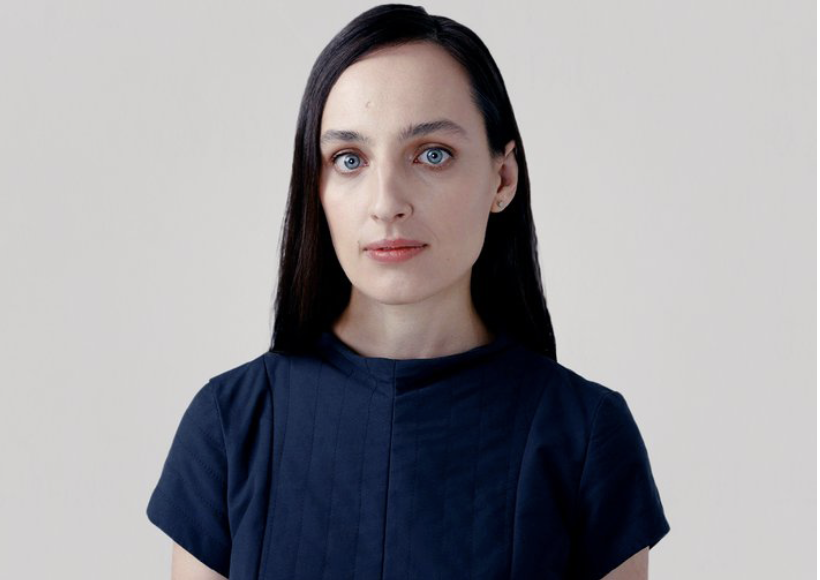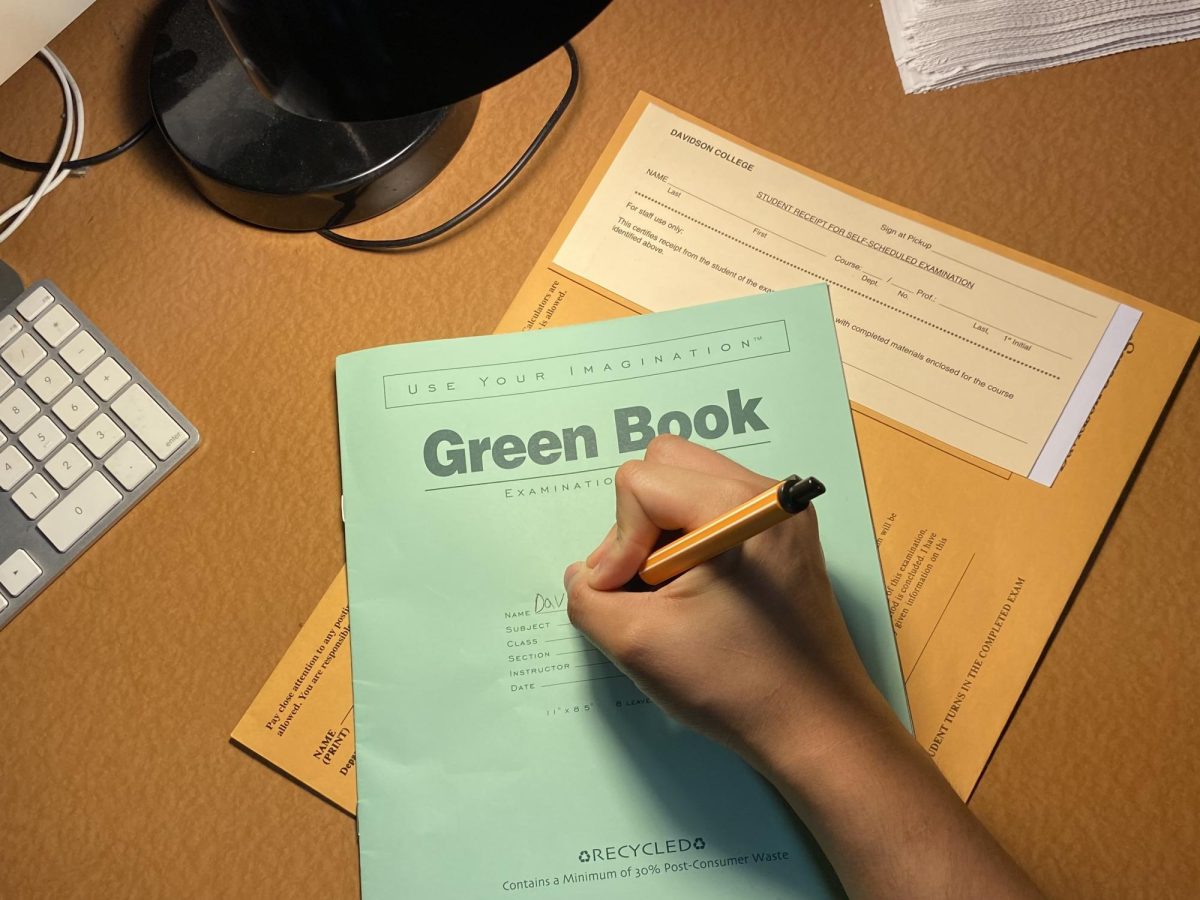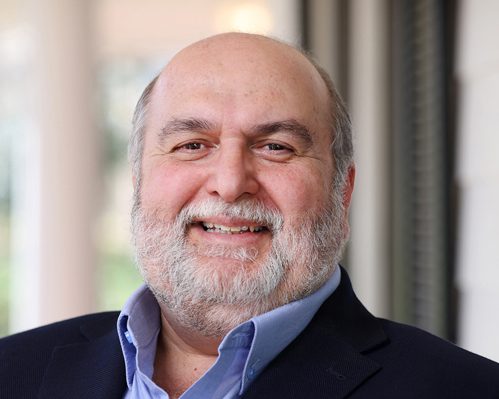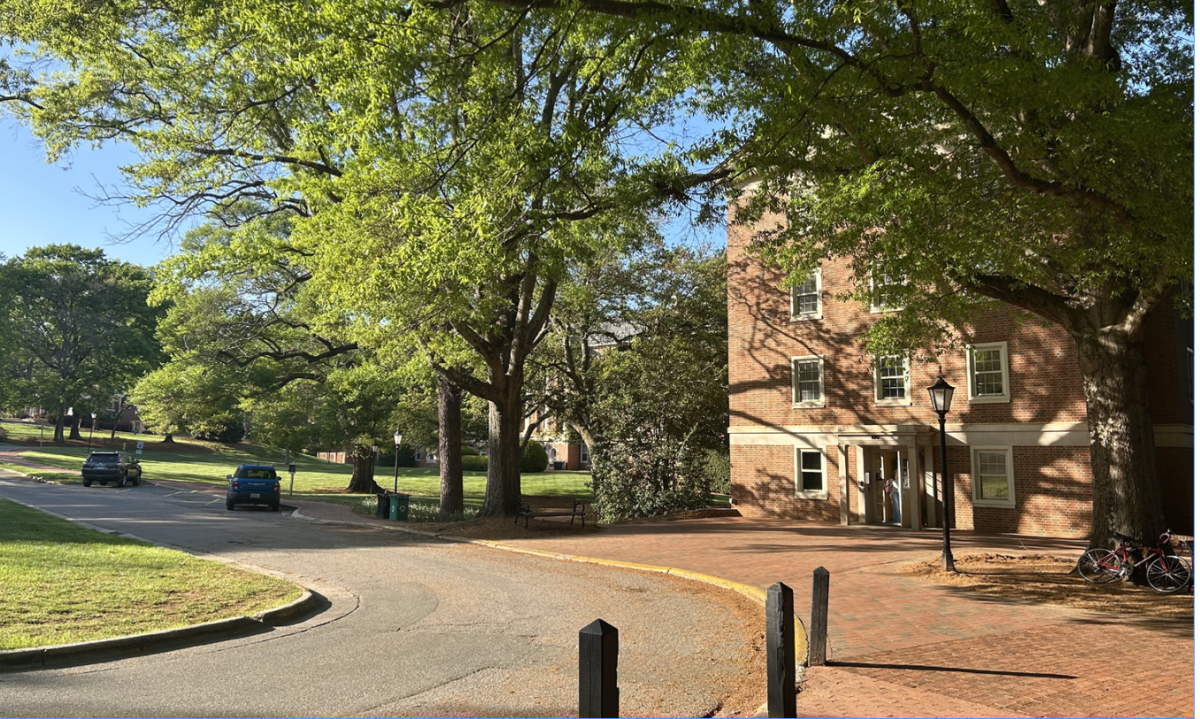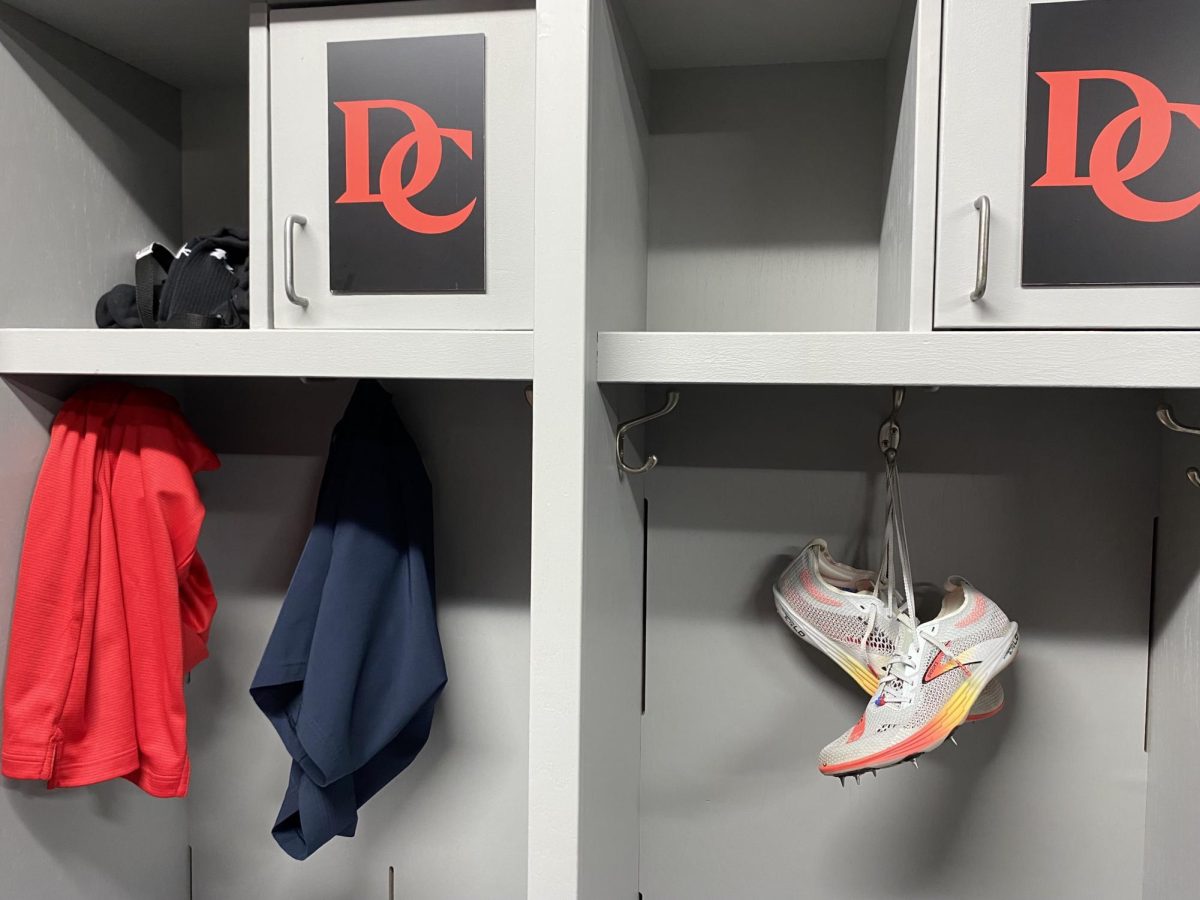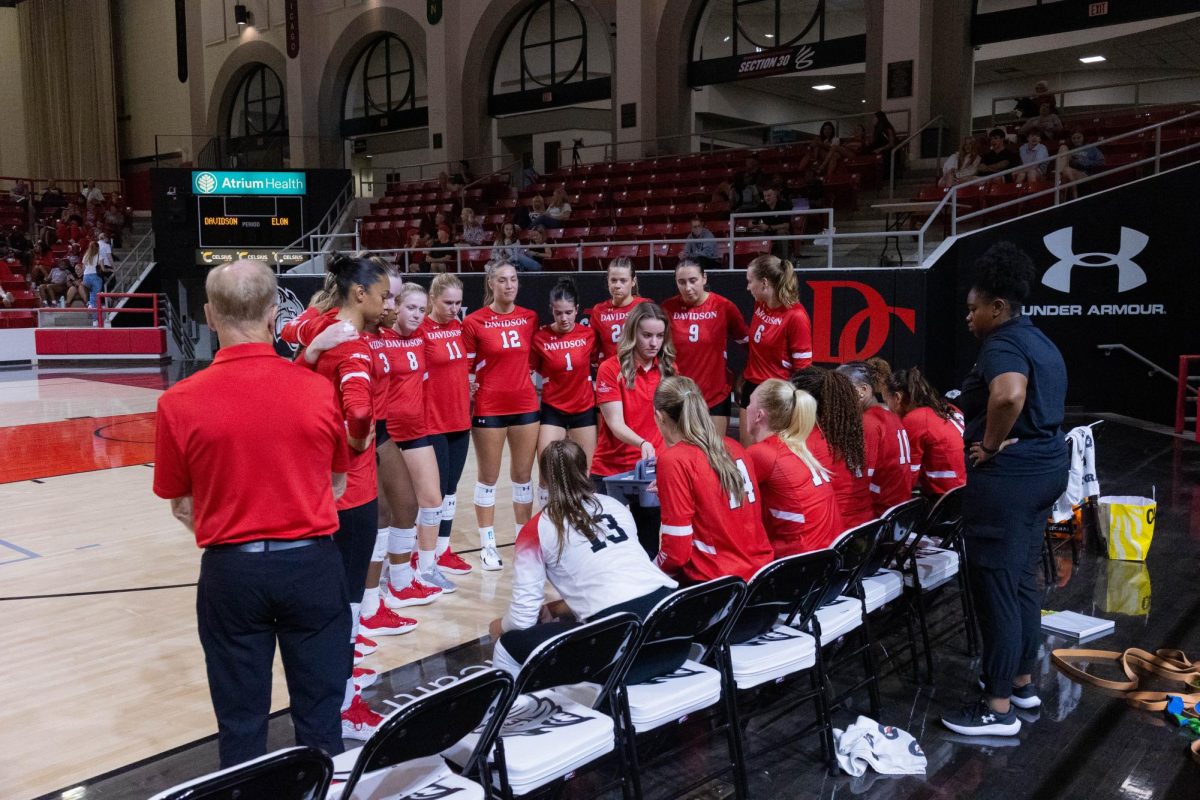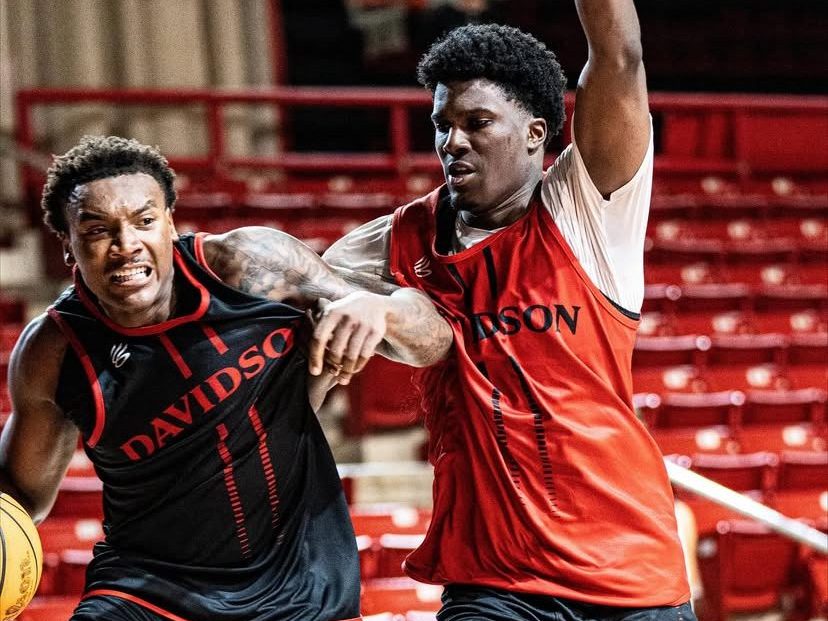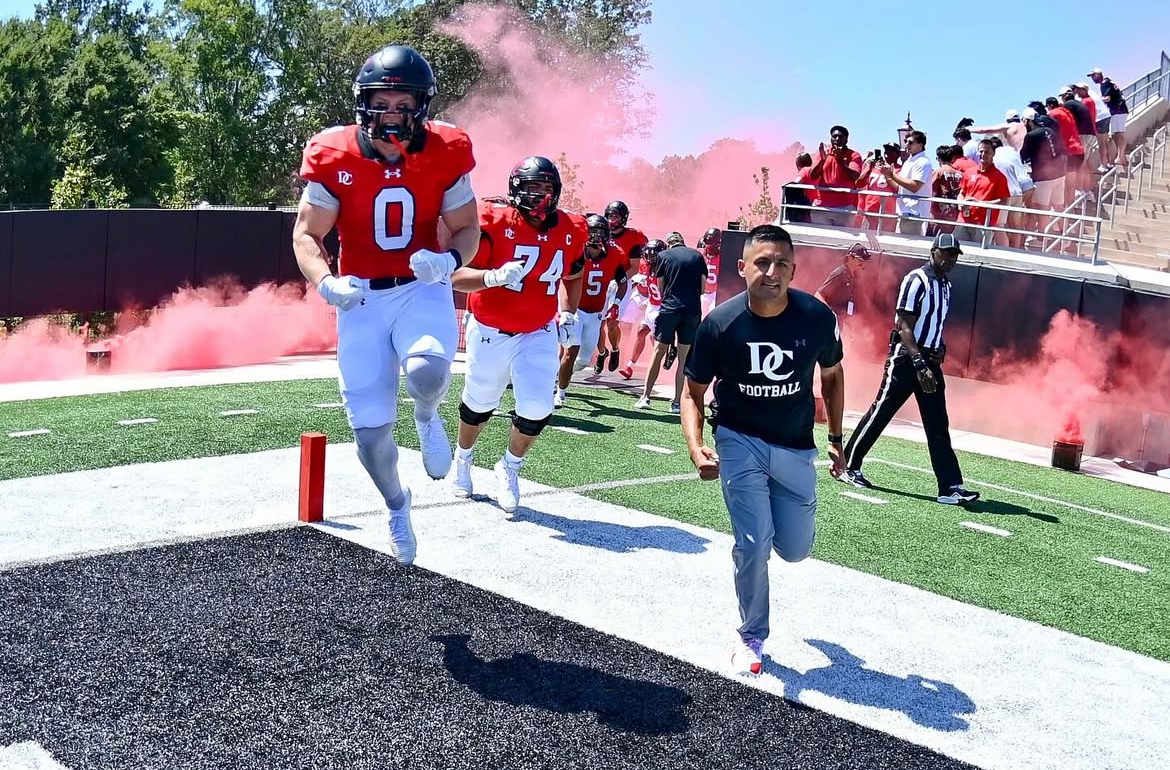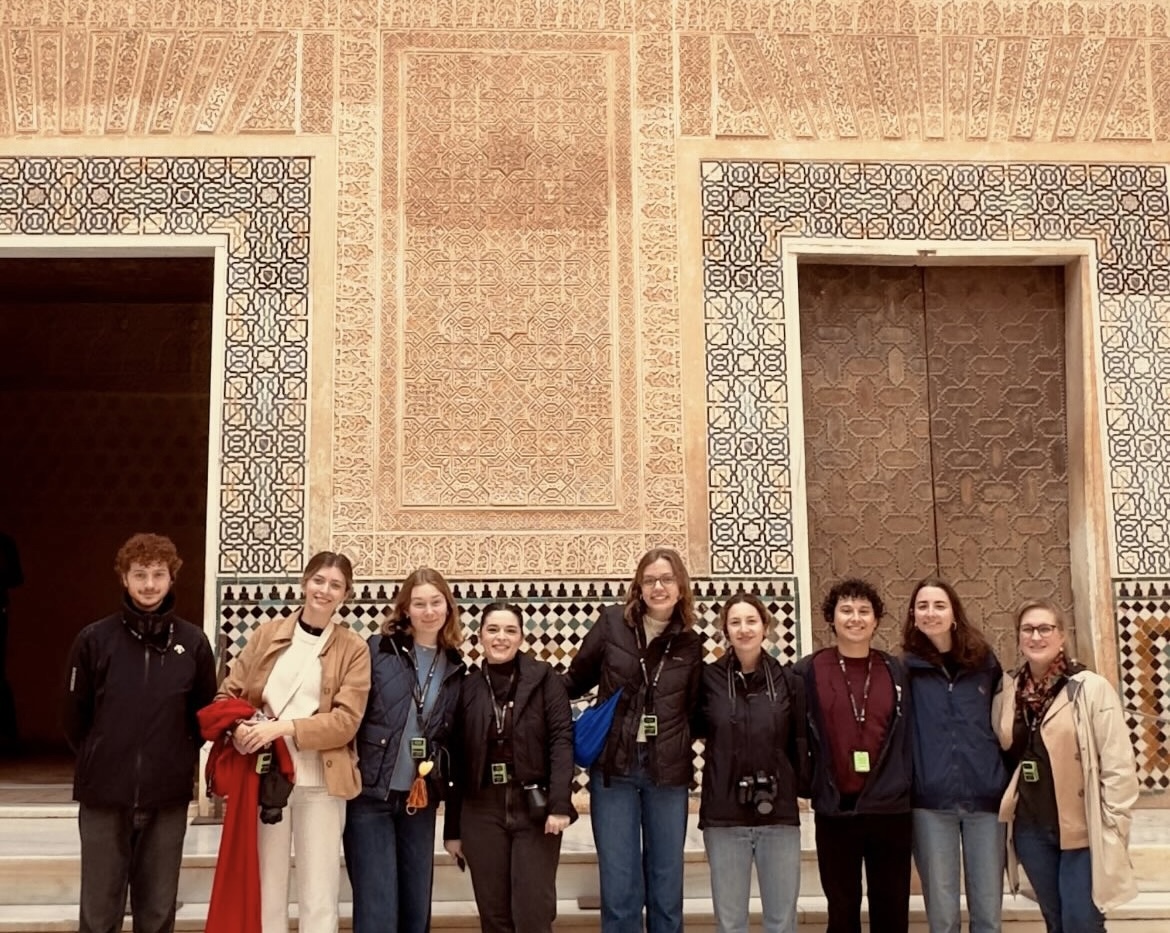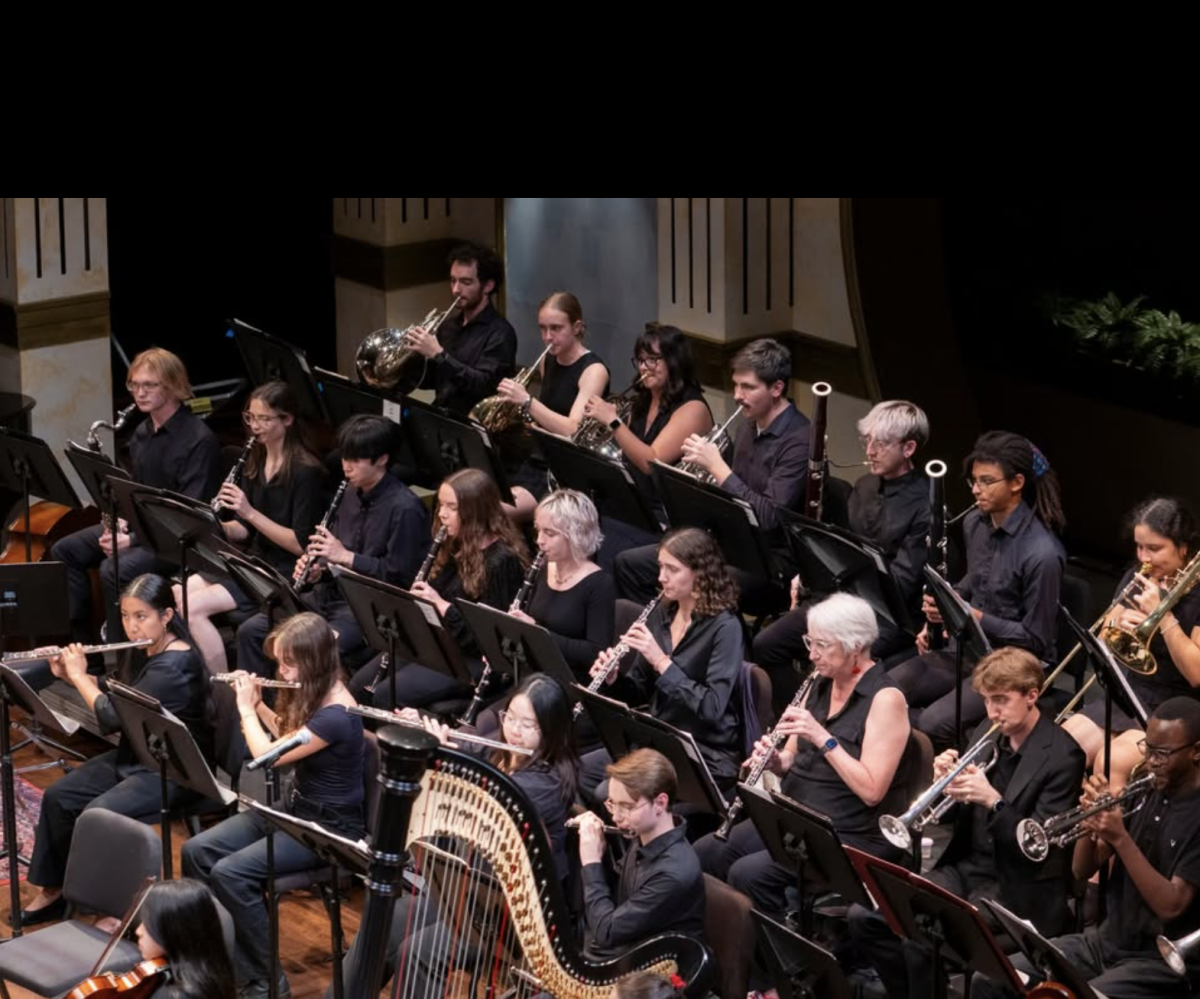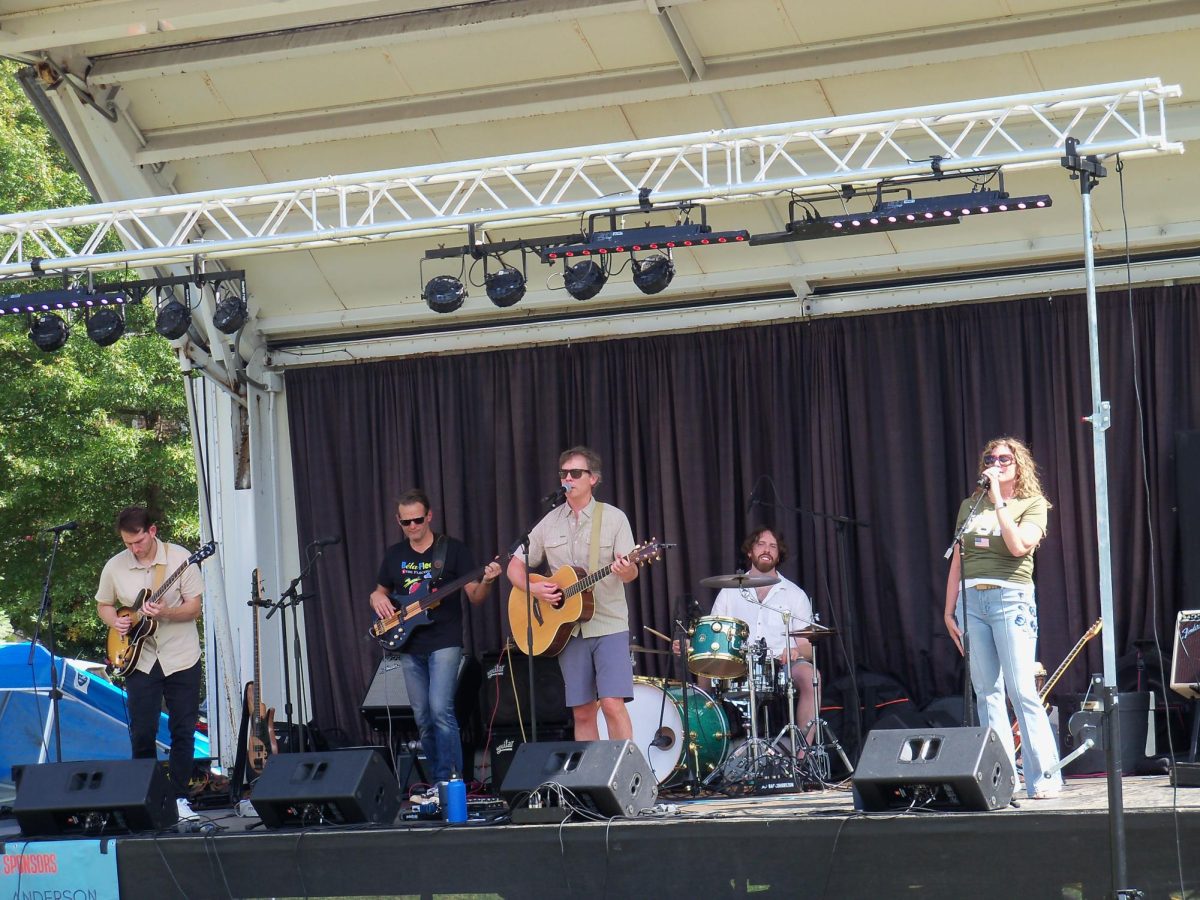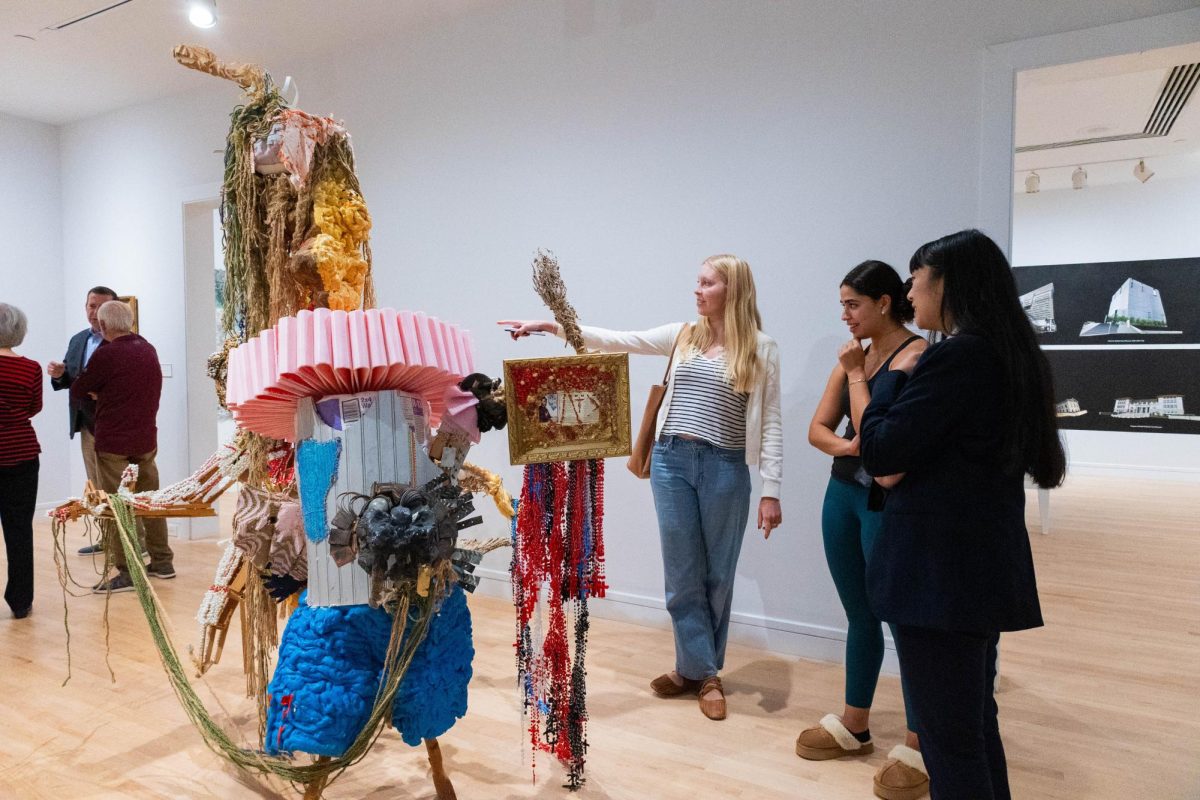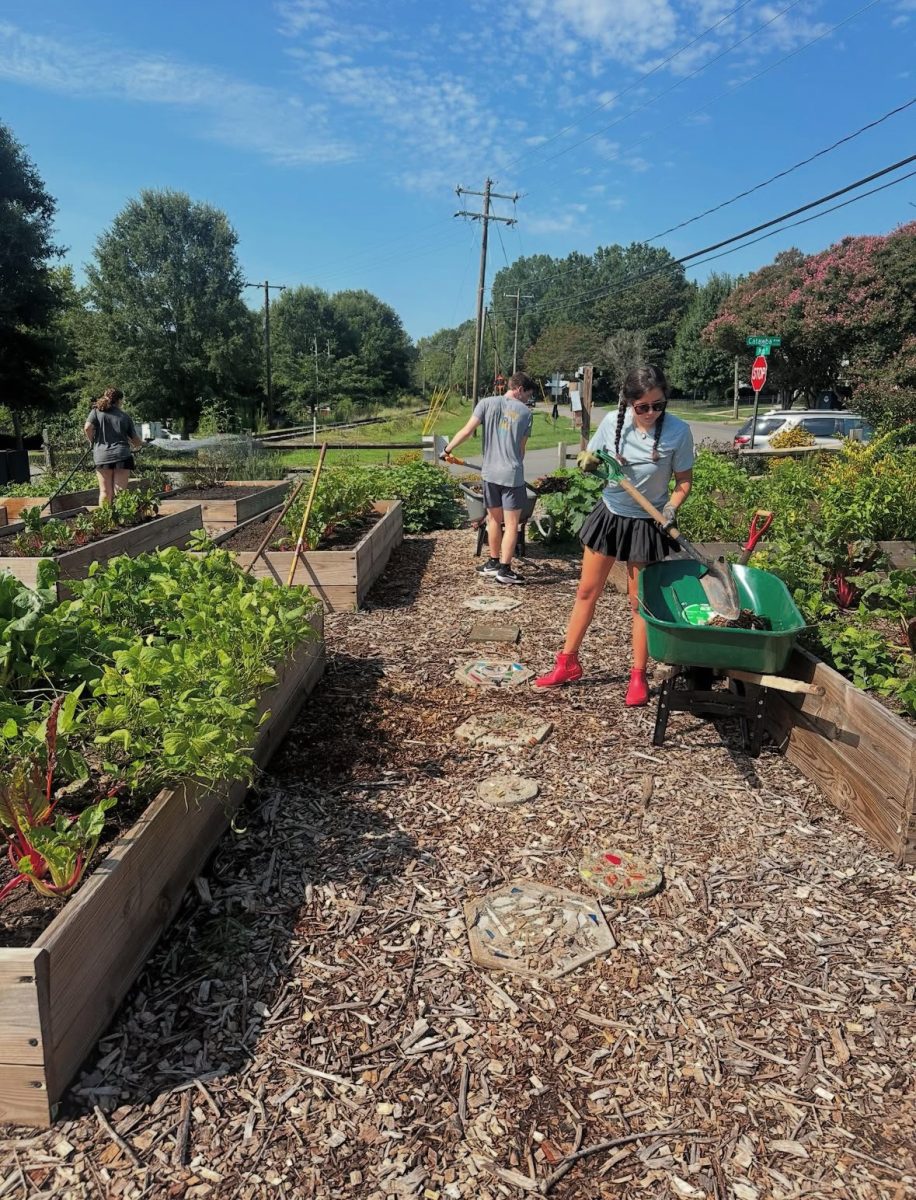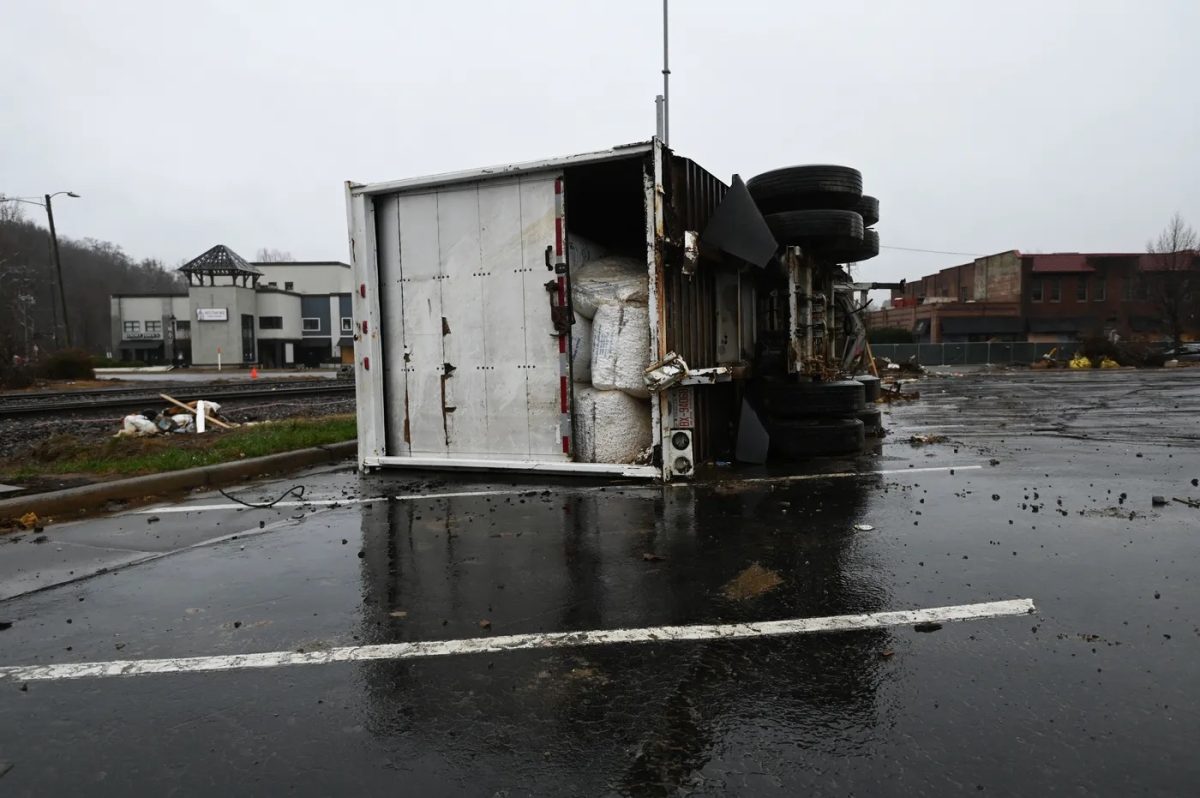Russia’s invasion of Ukraine marked its third year on Feb. 24 and up until a few days before, no public facing events were planned at Davidson. Two years ago, the college community commemorated the first year of the war with a large event in the Lilly Family Gallery. People came together to remember lives lost and livelihoods destroyed. In 2024, a smaller group of volunteers and supporters gathered to once again come together and raise funds to support Ukrainians. By the start of 2025, Ukraine had fallen out of the news cycle. Davidson students were more tuned in to Washington D.C. and the Middle East. The Trump administration’s opening of peace negotiations with Russia last week changed all of that.
Senior officials from the U.S. and Russia met in Saudi Arabia on Feb. 18 in what reporters at The New York Times described as a “head spinning reset of their relationship” to discuss ending the war in Ukraine and re-establishing normal relations between the US and Russia. These meetings signaled a distinct shift in US policy after three years of American efforts to isolate Moscow.
This shift motivated Professor and Chair of Russian Studies Dr. Amanda Ewington to host a “teach-in” on Feb. 24, three years to the day since Russia’s invasion, focused on current events in Ukraine and changing US/Russia relations. The event’s urgency was clear: it came less than a week after Ukraine rejected a ceasefire agreement brokered by the U.S. and Russia and on the same day that the U.S. voted against a U.N. resolution condemning the Russian invasion and calling for the withdrawal of Russian troops.
“This year, we were almost afraid to organize something because sadly it felt like people aren’t paying attention.We knew there would not be the same kind of energy. But last week with the remarks that my colleagues in political science, I’m sure, will be discussing, I just felt shocked and moved and felt like it was urgent to touch base again with the campus community about what is happening in Ukraine,” Ewington said while opening the event.
On Monday evening at the Carolina Inn on Main Street, Ewington, alongside Chair and Associate Professor of Political Science Dr. Besir Ceka and Assistant Professor of Political Science Dr. Silvana Toska, guided a room full of students through the events of the past week. Though the event was not posted on WildcatSync and advertised largely through email and word of mouth, it was standing room only. Following Ewington’s introduction, Ceka unpacked President Trump’s motivations for engaging more directly with the Kremlin, for which he provided three reasons.
“We find ourselves allying and aligning with actual dictators who imprisoned opposition parties, who killed their opponents, who poisoned political opponents,” Ceka said. “How did we get here? […] First, it’s very important to understand the way that Trump and his inner circle, but mostly Trump, view the world. It’s a transactional approach to international relations. What is it in for me? I think his view on politics extends and is based on his experience in the private sector as a CEO of a large organization. Let’s not forget that American corporations, and frankly, international corporations, are deeply authoritarian in the way they’re organized. The CEO at the helm, decision making is authoritarian. A lot of those tendencies translate very well in how he wants to do business.”
Trump’s recent engagement with Russia, Ceka argued, is also motivated by a personal animosity toward Ukrainian President Volodymyr Zelensky.
“We need to remember that it was Zelensky, or because of Zelensky and his unwillingness, or at least reluctance, to play ball with Trump that he [Trump] got impeached the first time around,” Ceka said.
“Recall, the first impeachment was due to him [Trump] pressuring Zelensky to use his power to investigate Biden, his [Trump’s] political opponent, in exchange for military aid. This transactional view is tied in with a personal animosity towards someone he clearly does not respect.”
The third motivation, and the one that Ceka described as “most overlooked right now” is an ideological convergence between Trump and Putin.
“If you paid attention to what [Vice President] JD Vance was saying at the Munich Security Conference, the focus was on actually berating Europe for not following far-right ideas and policies,” Ceka said. “Berating Europe, or Germany specifically, for creating a firewall around the Alternative For Germany, which is a far-right, extreme-right party, and putting forth the very kinds of policies and ideas that the Putin regime has been putting in place for a decade and a half now. I think, fundamentally, Trump sees a lot more in common ideologically with Russia currently than [he] sees with a tolerant, progressive, inclusive Europe.”
Ceka closed his remarks by describing Europe’s options to protect its interests in the current moment. These included a NATO with less US influence, a European defense community and a concert of democracies with other countries like Australia, Japan and New Zealand. There is also a fourth option: “capitulation to the authoritarians.”
Carrying on the theme of evolving relations between the US and European powers, Toska centered her part of the talk on what Ukraine has done for the US and the world, flipping common talking points that emphasize what the US has done for Ukraine.
“There have been such incredible military innovations on the battlefield in Ukraine,” Toska said. “The United States has learned tremendously on how to fight on the battlefield because of Ukraine, most importantly, because Ukraine used American weapons. It used obsolete American weapons that were going to cost us a ton of money to decommission because a lot of them were not useful for warfare. Ukraine took them, used them in the battlefield, improved on them, and it showed the United States how to fight modern warfare against an army like Russia.”
Ukraine also kept the conflict within the region, which maintains wider European security. European security, Toska argued, is American security.
“Ukraine single-handedly kept the conflict localized,” Toska stated. “European security is American security. [President Jimmy] Carter talked about this in 1983 when he talked about economic security as US national security. The reason for that is if Europe is not secure and is merged into a conflict in its east, what that means is that we lose the largest trading partner. Not to make all of this about dollar bills, but I do want to show you that even though it seems like the United States has done a lot for Ukraine, it has actually gotten a lot back.”
Ukraine’s lasting resistance has wider geopolitical implications that play to US interests, particularly in relation to China.
“We talked a lot in our classes about the fact that China may want to invade Taiwan,” Toska said. “Ukraine made it very clear to China that it’s not going to be a very weak thing, that invading a smaller country with a much weaker military can be incredibly costly. Even though Putin doesn’t care for the casualties, he seems to be impervious to however many Russians die in the battlefield. But China is aware that a long-term war is maybe not to its benefit […] In other words, economic stability and national security, these are two things the United States got out of its very small support of Ukraine in monetary terms.”
The event ended with remarks from Motria Procyk, co-leader of the local group Davidson for Ukraine, thanking attendees for showing their support and willingness to learn. Professor of Religious Studies Greg Snyder also spoke briefly on the importance of civic engagement and “melting the phone lines” of local representatives in order to keep supporting Ukraine front of mind for policymakers.
Ewington, in an interview following the teach-in, spoke to the importance of raising awareness amid the shift in public attention back towards Ukraine, and sustaining that attention.
“Having something like this had not seemed possible because people aren’t interested, people are ignoring Ukraine,” Ewington said. “We are doing a lot of quiet work behind the scenes. We continue to work with our refugees. We continue to connect people. There’s all this small stuff that’s going on behind the scenes, but the American public has just decided they’re not interested. They’ve moved on. We were hesitant to have an event and not have people show up. But with everything that happened last week that was so shocking it just felt like, ‘You know what?’ We have to raise awareness, that combined with the anniversary, it felt like a duty. We had to do something.”

